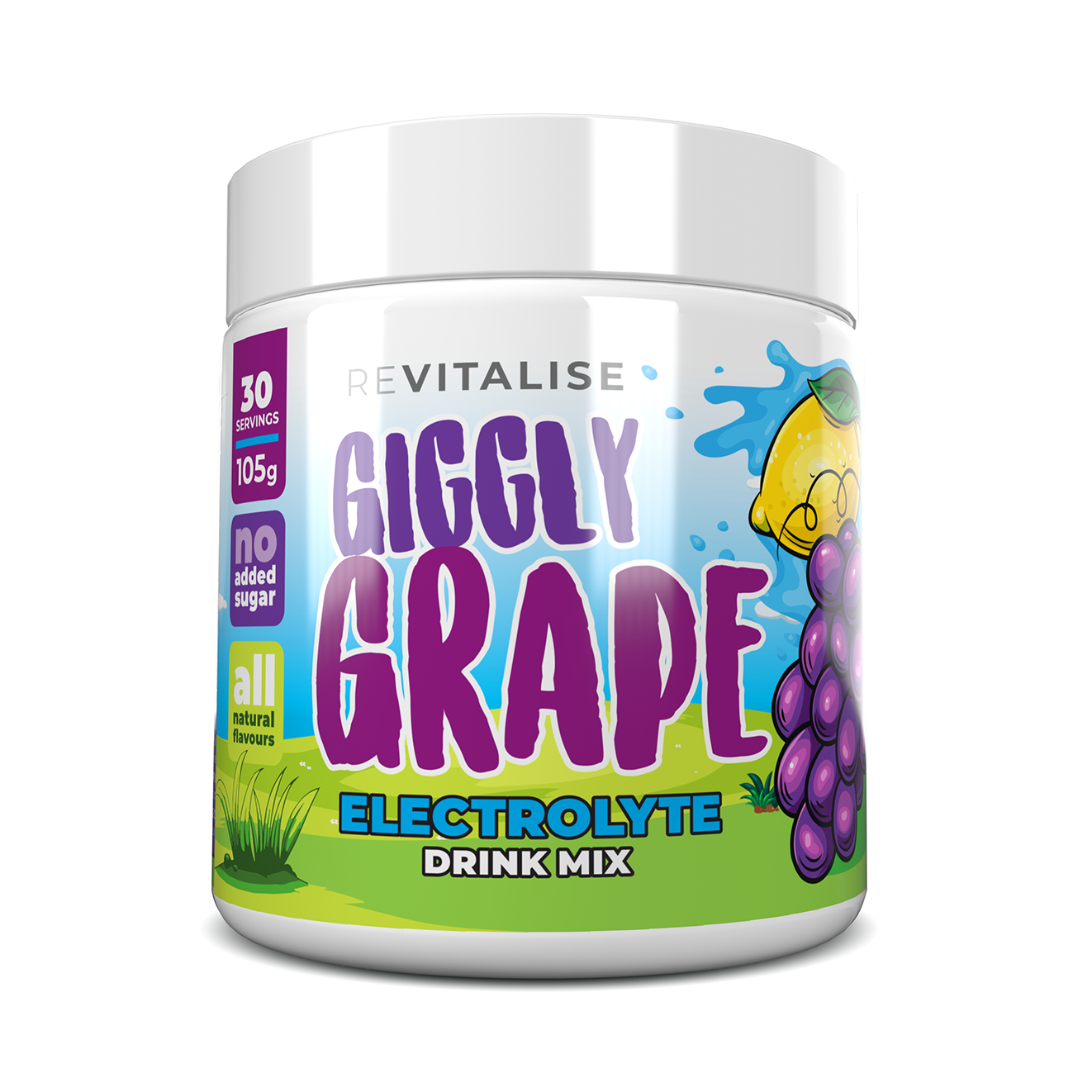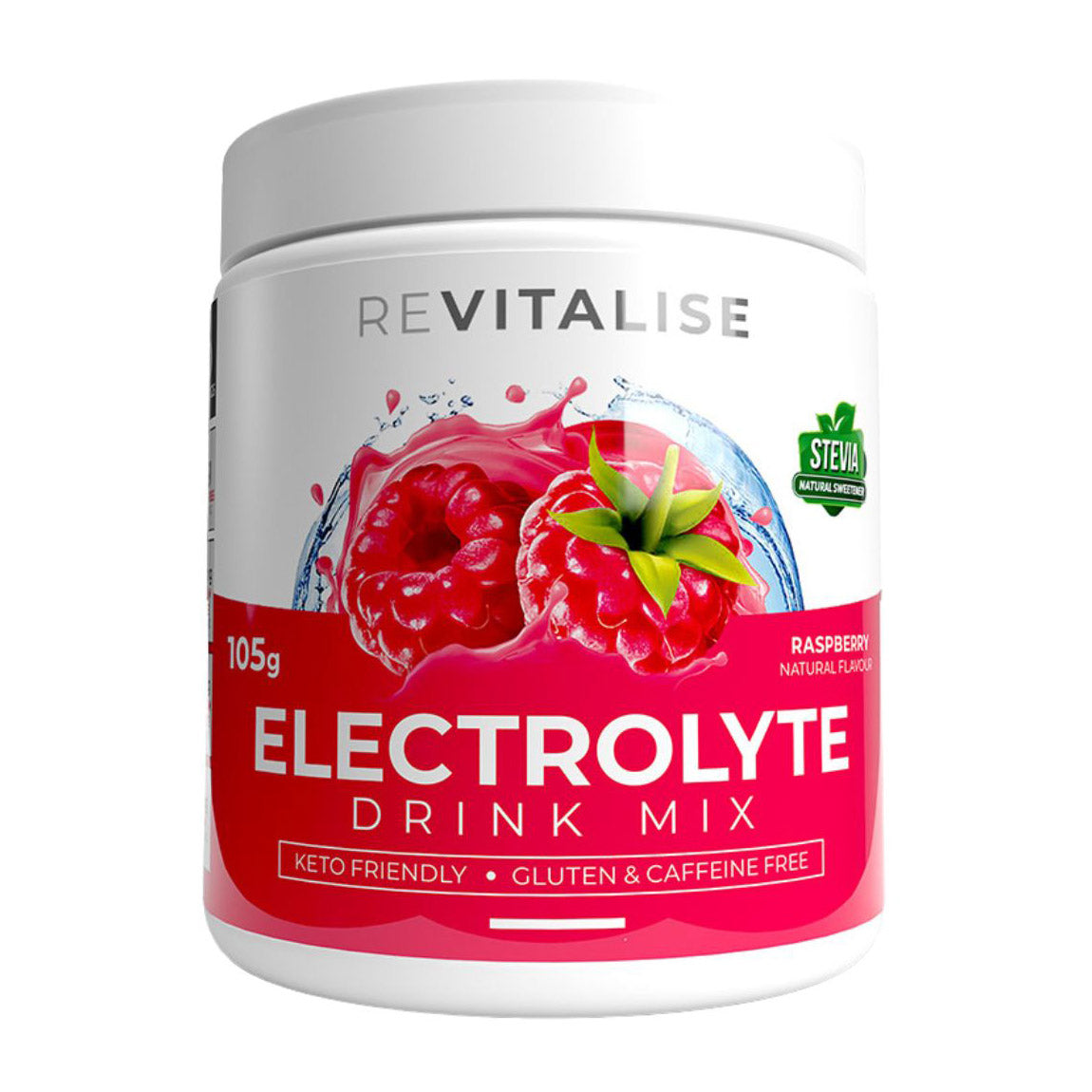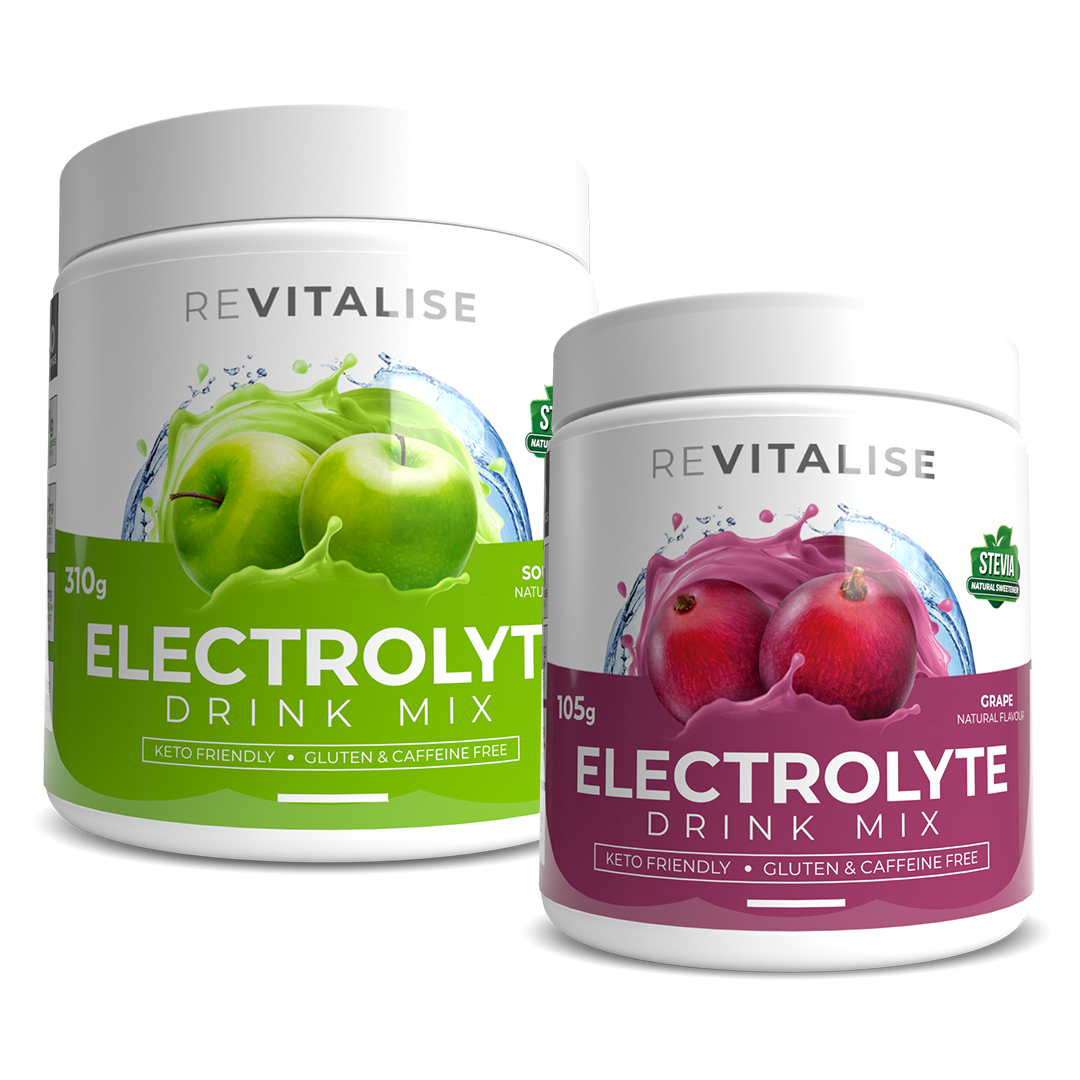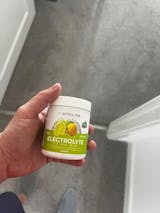After an intense workout, proper recovery is essential to help your body repair and replenish. One crucial aspect of post-workout recovery is ensuring optimal electrolyte balance. Electrolytes, such as sodium, potassium, magnesium, and calcium, play a vital role in hydration, muscle function, and overall well-being. In this article, we'll explore the importance of electrolytes in post-workout recovery and provide tips for maximising your recovery process.
Replenishing Fluids and Electrolytes
During exercise, your body loses fluids and electrolytes through sweat. To kickstart your post-workout recovery, it's crucial to replenish these losses. Begin by hydrating with water, and consider incorporating electrolyte-rich beverages or supplements into your routine. Electrolyte drinks, such as ReVitalise Daily, can provide a balanced blend of essential minerals and electrolytes to help restore optimal levels and promote hydration.

Focus on Sodium and Potassium
Sodium and potassium are two key electrolytes that play a significant role in muscle function and fluid balance. Sodium helps retain water in the body and supports nerve impulses, while potassium aids in muscle contractions and helps prevent cramping. Consuming foods high in these electrolytes can aid in post-workout recovery. Opt for sodium-rich options like pickles, olives, or even a small amount of sea salt. Bananas, leafy greens, avocados, and yogurt are excellent sources of potassium or our ReVitalise Daily Electrolytes available in delicious 4 flavours - raspberry, lemon and lime, grape or sour apple.
Magnesium for Muscle Relaxation
Magnesium is an essential electrolyte involved in over 300 biochemical reactions in the body, including muscle relaxation and recovery. It can help alleviate muscle soreness and promote relaxation after intense workouts. Foods such as nuts, seeds, dark chocolate, spinach, and legumes are great sources of magnesium. Alternatively, you can consider magnesium supplements or topical magnesium oil for targeted application.
Calcium for Muscle Function
Calcium is crucial for muscle contractions and plays a vital role in maintaining bone health. Adequate calcium intake is important for overall muscle function and post-workout recovery. Dairy products like milk, yogurt, and cheese are excellent sources of calcium. If you follow a dairy-free diet, consider fortified plant-based milk alternatives or include calcium-rich foods like leafy greens, tofu, and almonds in your diet.
Timing of Nutrition
To optimise post-workout recovery, it's essential to consume a balanced meal or snack containing electrolytes and other macronutrients within the post-workout window, typically within 30 minutes to two hours after exercise. This timing allows your body to replenish glycogen stores, repair muscles, and optimise recovery. Consider a balanced meal with a good source of protein, complex carbohydrates, and electrolyte-rich foods to support recovery.
Listen to Your Body
Everyone's body is unique, so it's important to listen to your body's signals and adjust your post-workout recovery routine accordingly. Pay attention to signs of dehydration, muscle cramping, or excessive fatigue, as they may indicate electrolyte imbalances. If needed, consult with a healthcare professional or sports nutritionist to assess your individual needs and develop a personalised post-workout recovery plan.
In conclusion, electrolytes play a vital role in post-workout recovery by promoting hydration, supporting muscle function, and aiding in overall well-being. Incorporating electrolyte-rich foods, beverages, and supplements can help replenish electrolyte levels and enhance your recovery process. By focusing on sodium, potassium, magnesium, and calcium, and timing your nutrition appropriately, you can optimise your post-workout recovery and support your fitness goals effectively. Remember, taking care of your body after exercise is just as important as the workout itself, so prioritise your recovery routine for long-term success.

















